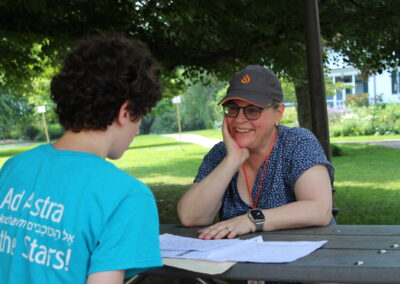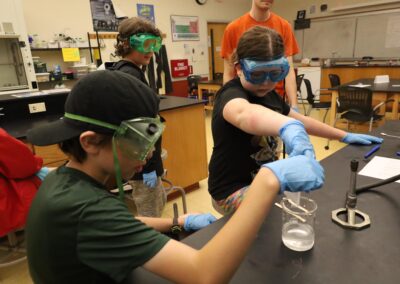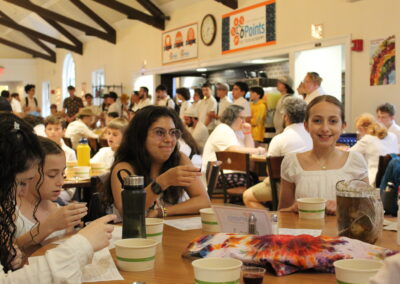Female Representation in STEM requires Courage
By Rabbi Dr. Kari Tuling
When I was in my first year of high school, I took Algebra 1 and really loved it. I even discovered for myself a different way to solve quadrilateral equations other than the one that the teacher showed us. I was really into it. When we got to Algebra 2 in my second year, I had a different teacher; he was the one who taught Algebra 2, Calculus, and AP Calculus. Early in the semester, I needed help with my problem set, and I asked the teacher for help.
He refused, saying, “I don’t think that girls should take Algebra 2.”
It’s probably not surprising that I never made it to Calculus, which had been my goal. Instead of loving math, I spent the semester fighting tears when doing each problem set.
You might wonder why I didn’t go to the principal or raise some kind of fuss, but I had already encountered this fixed mindset at that school and had good reason to believe that I couldn’t change the system. I didn’t think my contributions would help.
In my life since then, I have been a lot more willing to assert myself and proclaim that my gender should be irrelevant to my performance in class and at work. The same harsh words said to me as a young girl had been said countlessly of women rabbis as well: there was a time when a woman would have been denied admission to rabbinical school because she was a woman. Now, 50 years later, Hebrew Union College (which trains rabbis, cantors, and educators) now ordains as many women as men. Even better, it has been ordaining non-binary, gender non-conforming, and trans rabbis too. Someone can be a rabbi or a cantor, regardless of where they are on the gender spectrum. It’s no longer a relevant factor.
This kind of change, however, requires courage.
It’s the same kind of courage that, in this week’s parsha, the daughters of Zelophechad demonstrated when they went up to Moses and asked, “Can women inherit their father’s estate?”
The answer seems obvious to us in the 21st century; we cannot come to understand why they even had to ask. But that’s because we’re on the other side of change. The daughters of Zelophechad were willing to take the risk to pursue progress. That’s moral courage: the willingness to take a stand for what is right, even if it’s scary to take a risk.
Sci-Tech is part of a concerted effort to encourage girls and other underrepresented groups to love STEM – science, technology, engineering, and math. If only this camp had existed when I was younger, I would have had more faith in my own abilities.
What is encouraging to me in this story, however, lies within its conclusion. When Moses asks the Holy One of Blessing what to do, the right answer, the divine answer, was to include these women. We know what we are called to do: to be open to those who have been excluded, and to encourage them to participate fully. Sci-Tech is doing just this.
Rabbi Dr. Kari Tuling serves Congregation Kol Haverim in Glastonbury, Connecticut. She is the author of Thinking About God: Jewish Views published by JPS/University of Nebraska Press. This is her fifth summer as faculty at Sci-Tech.




